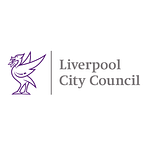A Sailor Surgeon’s Experience of Covid 19
Surgeon Commander Rourke was born in Liverpool. He read Natural Sciences and Medicine at Cambridge University, graduating in 2002. He completed basic surgical training in Cambridge, Norwich and Edinburgh before returning to Merseyside in 2006 for specialty orthopaedic training. He was made a Fellow of the Royal College of Surgeons in 2011 and in 2012 completed his training with periods in London and Australia. In 2013 he was appointed as a consultant surgeon at the Royal Liverpool University Teaching Hospital.
In early March I travelled to a remote part of South Africa with a Royal Navy sports tour. The tour went well but as it progressed it became obvious that coronavirus was a far greater concern than we could have conceived when we left Britain. On March 15th the PM of South Africa announced the closing of borders and airports. As nominal ‘Officer in Command’ I had to get us back to Britain with some urgency. On 17th March we took off from Durban on the last direct flight back.
The London we arrived back to was unrecognisable from the one we had left. Makeshift public health signs were up in Heathrow. Passengers were wearing masks and avoiding contact. As I walked to Euston, I noticed empty pubs. I’m sure the patrons didn’t know that it was probably their last pint for some time.
The following day I was still on leave but went straight to HMS Eaglet, the Royal Navy Reserve Unit I Command at Brunswick Dock. My priority was to protect my Ship’s Company by cancelling any live training and effectively shutting Eaglet down. To hold the Ship together, my fantastic team quickly designed a virtual training programme to keep my sailors current. It’s so good it may survive longer than this crisis.
The following day I went to the hospital, where I am responsible for the orthopaedic trauma service, and was briefed by colleagues on the situation. I was immediately tasked to reorganise our services to reduce any burden on Accident and Emergency departments. I quickly developed temporary minor injuries units at both sites to treat injuries. Later that week the hospital board asked me to interrogate and advise on PPE logistics for the hospital. Like any military officer I intuitively understand that logistics are everything and I advised that the head of logistics report straight to the CEO for the duration.
I then received a call from the hospitals chief surgeon asking me to lead a project to create a ‘Field Hospital’ facility in our, as yet, unfinished new Royal Liverpool Hospital. At the time it wasn’t clear if it was feasible or even the right option for Liverpool. My operational planning skills, learned at Staff College, helped me to quickly lead the project. I spent a weekend writing military formatted staff papers and presented to the Hospital Board the following week, recommending to proceed.
Initially I estimated it would take a month to make a floor of the new hospital into a functioning Covid treatment unit with 100 beds. It is testament to our fabulous staff that it took two weeks. Most of that time was taken up with a surgically planned ‘move in’. It called for a military logistics operation and indeed one of my superb logistics officers, Lt Cdr ‘Dusty’ Miller volunteered to lead it. Once set up, we focussed on making it safe before we took patients. Again, inspired by navy fire safety, we ran an entire day of fire drills until it was perfect.
The Agnes Jones unit, named after a famous Liverpool nurse, opened to some fanfare. To date it has treated over 100 patients. It’s a fabulous place to recover from this deadly disease, with beautiful single bedrooms, floor to ceiling glass and views over our great city.
Throughout all this I continued to work as a Major Trauma Surgeon. I also Commanded HMS EAGLET, remotely. My proudest moment as a Commanding Officer was when over 50 of my sailors volunteered to mobilise for Covid 19 operations. Thankfully, only a handful were ever needed, but simply by being ready they provided deep resilience and reassurance to the country at a difficult time.
As we return to a ‘new’ normal, my reflection is that I am extremely lucky to have two jobs that involve working with such committed, hard working people. There are enormous synergies between my two roles. Undoubtedly my military training has helped me help the NHS in Liverpool to be better prepared for this crisis. Equally my medical training has helped me appraise the Royal Naval Reserve response to the pandemic. Ultimately though the hard work has been done by NHS staff and sailors who, with a ‘can do’ attitude, have a lot in common.
If you’re inspired to join us in HMS Eaglet we are always recruiting.
Look us up online or call 0151 707 3326
